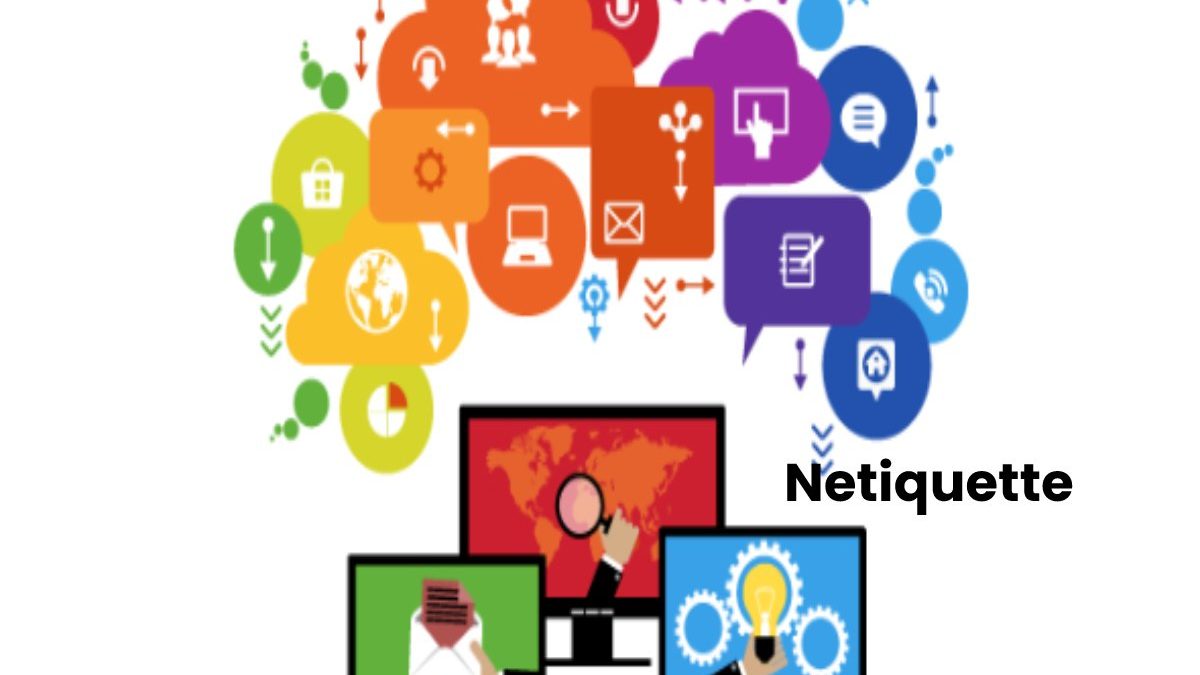Netiquette are a series of rules that regulate the user’s digital behavior to maintain a healthy and safe environment. In addition, they are a handy tool for Community Managers to implement good practices in their accounts and know how to manage comments.
Table of Contents
What are Netiquettes?
Netiquettes, netiquette, or etiquette on the net regulate the behavior that users must have on the net to guarantee fun, pleasant navigation, and away from problems.
These rules regulate all forms of interaction in cyberspace, such as email, forums, blogs, websites, chats, social networks, and other applications and tools on the Internet.
Users have promoted netiquettes to facilitate coexistence on social networks, avoid conflicts and negative comments that may affect any user, and threaten their honor, privacy, and self-image in the virtual world. However, these do not penalize a user’s behavior on the network. They are a simple manual to indicate the ideal way we should coexist in the online environment.
The 10 Rules of Netiquette
1. Introduce Yourself Properly
The way you interact on the web reflects your interaction in the physical world. That is why it is recommended to be friendly, polite, and attractive — just like in real life.
Avoid capital letters: Have you ever felt that it is as if you were being yelled at when you write in capital letters? Try not to use them in any conversation, less if it is at a professional level.
Use neutral language that anyone can understand. In this way, you will be inclusive. Please don’t resort to sarcasm as it can by the person on the other side of the screen.
2. Respect Each other’s Privacy
Web privacy is just as important as physical privacy, so avoid writing or sending emails at times when you know the other person is not available.
Do not spread someone’s email without their consent, as you may start receiving spam messages – not pleasant for anyone -.
3. Avoid Cyberbullying
It is one of the most fabulous essential and least fulfilled netiquettes.
Don’t let your emotions speak online, whether you’re communicating with a friend or a stranger. It’s easy to be snappy, rude, or aggressive when your words appear as squiggles on a screen. Interacting behind a screen can make your texture invincible and remove your social filter in the worst possible way.
4. Follow the Rules of the Platform on Which you Interact
It is essential to know what type of network or tool is use. Depending on these, the behavior, the kind of content, and language will vary. For example, Twitter is an information network, LinkedIn is professional, and Instagram and Facebook are the most carefree and libertine.
5. Check Your Sources
It’s embarrassing to be wrong, and it can cause others to stop trusting you or stop communicating with you altogether. Getting accurate information is a deeply ingrained human preference, and being misinformed can be very annoying.
Do your research thoroughly before making factual claims on the Internet. A quick Google search and a link to the sources’ websites build trust in others.
6. Respect the Other’s Time
Applicable netiquette in the physical and virtual world is respect for time.
Naturally, sometimes we are excited to share interesting videos or articles that we have seen, but doing it regularly can be somewhat uncomfortable. Choose the correct times to do it —not during working hours, or explain why you think it is essential that the other person should see it at the time. Don’t take it individually if the person doesn’t see it or doesn’t let you know but thinks they may have other preferences or are just too busy.
7. Don’t Forget to Reply to your Messages
It’s annoying when someone expects you to reply to a text or email right away, but it’s just as irritating when you text someone and they take forever to respond.
If you’ve exchanged emails with someone, the expectation is that email correspondence is okay, so not responding can be hurtful or rude. If the other person writes an incredibly long message, tell them you’ll reply soon, don’t just ignore the message
8. Share Knowledge
Converting the network into a means of teaching and learning has become a prevalent practice, especially since the appearance of online schools and e-learning. Put yourself in the residence of others and remember when you did not know a topic, what they ask you about now.
9. Send Files in Suitable Formats
Don’t send or attach large files directly, as you never know what kind of storage space or Internet connection other people have. Use a cloud service or personal site, especially if you want to share a lot of files.
If you have to drive sensitive files, use an encryption program to keep them safe and protect the files with a password to show the recipient that you care about their digital security.
10. Excuse the Mistakes
We have all made mistakes on social networks at some point. Therefore, let the one who makes a mistake learn as they go. And if you want to let them know, do it politely and kindly. Think about how you would like them to behave towards you if you were the one who made a mistake.
Conclusion
Netiquette represents the rank of proper manners and behavior online. In common, netiquette remains the professional and social etiquette practiced and advocated in electronic communication over any computer network. Standard guidelines include being courteous and precise and avoiding cyber-bullying. Netiquette also dictates that users should obey copyright laws and avoid overusing emoticons.


